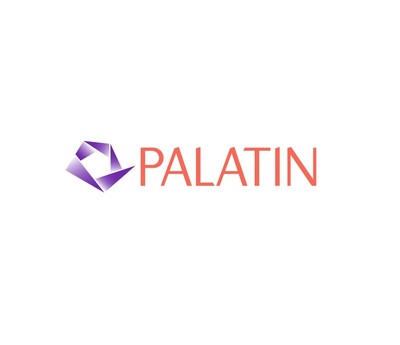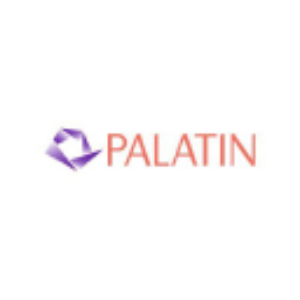Palatin Announces Positive Topline Results from Phase 2 Ulcerative Colitis (UC) Study of Oral Melanocortin-1 Receptor Agonist PL8177
Rhea-AI Summary
Palatin Technologies (NYSE: PTN) has announced positive topline results from its Phase 2 study of PL8177, an oral melanocortin-1 receptor agonist, for treating ulcerative colitis (UC). The study demonstrated significant efficacy after eight weeks of treatment:
Key findings include:
- Clinical remission achieved in 33% of PL8177-treated patients vs 0% on placebo
- Clinical response shown in 78% of PL8177-treated patients vs 33% on placebo (p<0.005)
- Symptomatic remission reached in 56% of PL8177-treated patients vs 33% on placebo
The trial involved 12 patients (9 PL8177, 3 placebo) with active UC. The treatment demonstrated excellent safety with no adverse events reported. In patients with moderate disease affecting all three colon segments, 60% showed improvement across all segments, and 80% improved in two segments. The company is currently in licensing discussions with multiple pharmaceutical companies.
Positive
- Strong efficacy with 78% clinical response rate vs 33% placebo (p<0.005)
- Excellent safety profile with no adverse events reported
- Advanced licensing discussions ongoing with multiple big pharma companies
- Novel treatment mechanism showing promise as alternative to current therapies
- 60% of moderate disease patients showed improvement across all colon segments
Negative
- Small trial size of only 12 patients limits statistical significance
- Study enrollment stopped early at 12 patients vs planned 28 patients
- Trial not powered to show statistical significance due to low patient numbers
News Market Reaction 1 Alert
On the day this news was published, PTN declined 5.41%, reflecting a notable negative market reaction.
Data tracked by StockTitan Argus on the day of publication.
- Clinical Remission: Achieved in
33% of PL8177-treated patients versus0% on placebo after eight weeks of treatment. - Clinical Response (statistically significant): Demonstrated in
78% of PL8177-treated patients versus33% on placebo after eight weeks of treatment (p<0.005). - Symptomatic Remission: Achieved in
56% of PL8177-treated patients versus33% on placebo after eight weeks of treatment. - Safety and Tolerability: Excellent, with no adverse events.
- Licensing: Discussions advancing with multiple big pharma companies.
"We are thrilled with the positive results in this study, especially the meaningful and high rates of achievement for clinical remission and clinical response. These endpoints align with the FDA's recommended primary and key secondary endpoints for evaluating efficacy in UC clinical trials," stated Carl Spana, Ph.D., President and CEO of Palatin. "Most patients showed significant symptom and endoscopic score improvements after just eight weeks of treatment. This study evaluated a novel mechanism of action, MC1R agonism, as a potential treatment for UC. Given these positive results, once-daily oral PL8177 could be a safe and effective alternative to immunosuppressive and steroid therapies, which have significant safety and tolerability concerns."
The Phase 2 randomized, placebo-controlled study evaluated twelve patients (nine in the PL8177 arm and three in the placebo arm) with active ulcerative colitis, (defined as having a Mayo Endoscopic Total Score of at least two), for eight weeks of treatment. Treatment with oral PL8177 was well tolerated and no treatment-related side effects were reported. Key findings after eight weeks of treatment are summarized below:
- Clinical remission was achieved in
33% (3 of 9) of PL8177-treated patients versus0% (0 of 3) on placebo.- Clinical remission is defined per FDA Guidance (April 2022) as a modified Mayo Score (mMS) of 0 to 2, including the following three components: rectal bleeding subscore = 0, stool frequency subscore = 0 or 1, and endoscopy subscore = 0 or 1.
- Clinical response (statistically significant) was demonstrated in
78% (7 of 9) of PL8177-treated patients versus33% (1 of 3) on placebo (p<0.005).- Clinical response is defined per FDA Guidance (April 2022) as a decrease from baseline in the mMS of greater than or equal to 2 points and at least a
30% from baseline, and a decrease in rectal bleeding subscore of greater than or equal to 1 or an absolute rectal bleeding subscore of 0 or 1.
- Clinical response is defined per FDA Guidance (April 2022) as a decrease from baseline in the mMS of greater than or equal to 2 points and at least a
- Symptomatic remission was achieved in
56% (5 of 9) of PL8177-treated patients versus33% (1 of 3) on placebo.- Symptomatic remission is defined as Mayo stool frequency subscore (SFS) of 0 or 1 without worsening, and Mayo rectal bleeding subscore (RBS) of 0.
- Results for a subset of patients with more moderate disease at baseline, defined by the presence of inflammation in all
three colon segments (segment endoscopic score of greater than or equal to 1 in the rectum, descending colon, and sigmoid colon segments) at baseline were:- Three of five (
60% ) PL8177-treated patients showed improvement in all three segments. - Four of five (
80% ) PL8177-treated patients showed improvement in two of the three segments. - Zero of one (
0% ) placebo patients showed improvement in two or more segments.
- Three of five (
"Despite the advances in therapy for UC, I frequently see patients who struggle with this condition and their symptoms. This is why there remains a strong need for new treatment options that work in different ways," said Dana J. Lukin MD, PhD, Clinical Director of the Jill Roberts Center for Inflammatory Bowel Disease at Weill Cornell Medicine-New York Presbyterian Hospital. "Seeing a good percentage of patients treated with PL8177 achieve strong results for clinical remission and clinical response in this short study on UC patients is a compelling indicator that melanocortin-1 receptor agonists could be a promising treatment option for UC."
Continued Dr. Spana, "The strong data from this Phase 2 study, along with the positive Phase 1 findings and robust preclinical data, provides meaningful evidence to support the advancement of a melanocortin-1 receptor agonist as a potential treatment for ulcerative colitis. Several major pharmaceutical companies have shown strong interest in our UC program, and we believe these positive Phase 2 results in PL8177 treated patients, for the critical efficacy endpoints of both clinical remission and clinical response, could help solidify a potential licensing deal."
The Phase 2 PL8177 study was a multi-center, randomized, double-blind, placebo-controlled, adaptive design, parallel group of PL8177, with once daily oral dosing in adult UC subjects for 8 weeks. The study originally planned to enroll up to 28 patients, with an interim analysis after 12-16 participants. Due to a shift in strategic focus, Palatin stopped enrollment at 12 patients to accelerate out-licensing discussions and also to redirect resources to development of its melanocortin obesity assets. As a result of lower patient numbers, the study was not powered to show statistical significance.
Details about the trial can be found at clinicaltrials.gov under the identifier NCT05466890. Additional findings are expected to be shared at an upcoming scientific conference.
Ulcerative colitis is a form of inflammatory bowel disease (IBD) that causes inflammation in the digestive tract and can result in damage to the colon lining.1 Patients often experience a range of unpredictable symptoms that impact their daily lives, such as abdominal pain, bloody stool and urgency to use the bathroom.2,3 The disease course varies between patients, and in some cases can lead to surgery or complications, including cancer or death.3,4
Orally administered PL8177 is designed to target melanocortin-1 receptors on the surface of cells lining the colon. In a Phase 1 clinical trial, the oral version of PL8177 was shown to effectively reach the colon and remain without spreading throughout the rest of the body.
The Company's Phase 2 trial for ulcerative colitis builds on previous research with oral PL8177. Earlier studies showed that the drug helps improve colon health by increasing the number of important colon cells. The treatment also helped reduce harmful inflammation by changing certain immune cells from promoting inflammation to helping resolve it.
About Melanocortin Receptor Agonists
The melanocortin receptor ("MCR") system has effects on inflammation, immune system responses, metabolism, food intake, and sexual function. There are five melanocortin receptors, MC1R through MC5R. Modulation of these receptors, through use of receptor-specific agonists, which activate receptor function, or receptor-specific antagonists, which block receptor function, can have medically significant pharmacological effects.
Many tissues and immune cells located in the eye (and other places, for example the gut and kidney) express melanocortin receptors, empowering our opportunity to directly activate natural pathways to resolve disease inflammation.
About PL8177
PL8177 is a synthetic cyclic heptapeptide with demonstrated efficacy in multiple animal inflammatory bowel disease models. PL8177 is a potent, selective agonist at the human melanocortin-1 receptor (MC1R), with sub-nanomolar affinity binding and EC50 functional values. Palatin data demonstrates that their oral formulation of PL8177 was protected from degradation in the stomach and small intestine of humans and delivered to the colon over an extended period. In addition, orally administered PL8177 had a significant effect on resolving inflammation in a rat bowel inflammation model.
PL8177 in oral formulations has demonstrated repeated, robust efficacy in ulcerative colitis disease models. MC1R is found on epithelial cells and resident macrophages of the colon which are accessible from the lumen of the colon. Orally administered PL8177 is not systemically absorbed. PL8177 has the potential for excellent efficacy without safety concerns.
About Ulcerative Colitis
Ulcerative colitis is a chronic disease of the large intestine (colon), with inflammation and ulcerations that can cause significant abdominal pain, persistent diarrhea, loss of appetite and other symptoms. An estimated 1.25 million individuals in
About Palatin
Palatin is a biopharmaceutical company developing first-in-class medicines based on molecules that modulate the activity of the melanocortin receptor systems, with targeted, receptor-specific product candidates for the treatment of diseases with significant unmet medical need and commercial potential. Palatin's strategy is to develop products and then form marketing collaborations with industry leaders to maximize their commercial potential. For additional information regarding Palatin, please visit Palatin's website at www.Palatin.com and follow Palatin on Twitter at @PalatinTech.
Forward-looking Statements
Statements in this press release that are not historical facts, including statements about future expectations of Palatin Technologies, Inc., such as statements about Palatin products in development, clinical trial results, potential actions by regulatory agencies including the FDA, regulatory plans, development programs, proposed indications for product candidates, and market potential for product candidates are "forward-looking statements" within the meaning of Section 27A of the Securities Act of 1933, Section 21E of the Securities Exchange Act of 1934 and as that term is defined in the Private Securities Litigation Reform Act of 1995. Palatin intends that such forward-looking statements be subject to the safe harbors created thereby. Such forward-looking statements involve known and unknown risks, uncertainties and other factors that could cause Palatin's actual results to be materially different from its historical results or from any results expressed or implied by such forward-looking statements. Palatin's actual results may differ materially from those discussed in the forward-looking statements for reasons including, but not limited to, results of clinical trials, regulatory actions by the FDA and other regulatory and the need for regulatory approvals, Palatin's ability to fund development of its technology and establish and successfully complete clinical trials, the length of time and cost required to complete clinical trials and submit applications for regulatory approvals, products developed by competing pharmaceutical, biopharmaceutical and biotechnology companies, commercial acceptance of Palatin's products, and other factors discussed in Palatin's periodic filings with the Securities and Exchange Commission. Palatin is not responsible for updating events that occur after the date of this press release.
Palatin Technologies® is a registered trademark of Palatin Technologies, Inc.
______________
1 Lewis JD, Parlett LE, Jonsson Funk ML, et al. Incidence, prevalence, and racial and ethnic distribution of inflammatory bowel disease in
2 The Facts about Inflammatory Bowel Diseases. Crohn's & Colitis Foundation of America. 2014. Available at: https://www.crohnscolitisfoundation.org/sites/default/files/2019-02/Updated%20IBD%20Factbook.pdf. Accessed June 2024.
3 Ulcerative colitis. Mayo Clinic. 2022. Available at: https://www.mayoclinic.org/diseases-conditions/ulcerative-colitis/symptoms-causes/syc-20353326. Accessed June 2024.
4 Monstad, I, Hovde O, Solberg IC, A Moum B. Clinical course and prognosis in ulcerative colitis: results from population-based and observational studies. Ann Gastroenterol. 2014;27(2):95-104.
![]() View original content to download multimedia:https://www.prnewswire.com/news-releases/palatin-announces-positive-topline-results-from-phase-2-ulcerative-colitis-uc-study-of-oral-melanocortin-1-receptor-agonist-pl8177-302413472.html
View original content to download multimedia:https://www.prnewswire.com/news-releases/palatin-announces-positive-topline-results-from-phase-2-ulcerative-colitis-uc-study-of-oral-melanocortin-1-receptor-agonist-pl8177-302413472.html
SOURCE Palatin Technologies, Inc.






